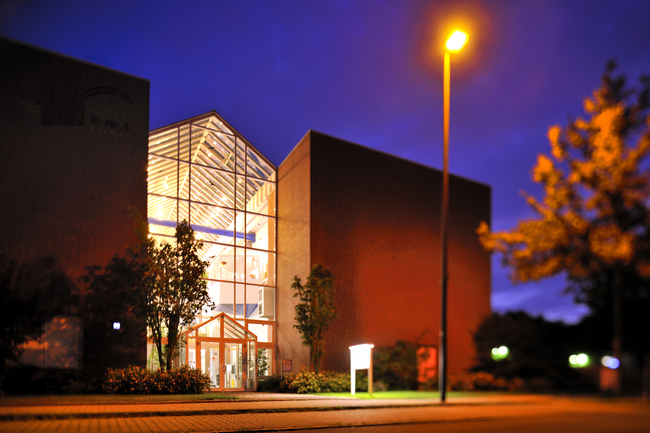History
- 1991 Center for Marine Tropical Ecology (ZMT) is founded by Professor Gotthilf Hempel, previously director of the Alfred Wegener Institute
- 2000 Prof. Dr. Venugopalan Ittekkot becomes Director of the ZMT. He expands the Institute's cooperation with Asia, in particular with India, Indonesia and China.
- 2001 Prof. Ittekkot brings the management of the German Center of the International Ocean Institute (IOI), founded by Elisabeth Mann Borgese, to the ZMT.
- 2009 ZMT becomes a member of the Leibniz Association and is now called Leibniz Center for Marine Tropical Ecology
- 2010 Professor Hildegard Westphal becomes ZMT director
- 2011 Professor Westphal is elected as Scientific Vice President of the Leibniz Association
- 2013 External scientific evaluation by internationally renowned experts
- 2014 Senate of the Leibniz Association recommends further funding of the ZMT
- 2017 ZMT changes its name to Leibniz Centre for Tropical Marine Research. The name change takes into account the increasingly interdisciplinary scope of the ZMT, which includes both the natural sciences and the social sciences.
- 2017 New dual leadership at ZMT: Dr. Nicolas Dittert joins as Managing Director alongside Scientific Director Professor Hildegard Westphal
- 2020 Dr. Werner Ekau takes over from Hildegard Westphal as acting scientific director of ZMT
- 2022 Prof. Dr. Raimund Bleischwitz is appointed as scientific director of the institute. He joins ZMT from renowned University College London (UCL). In London, Bleischwitz held the Professorship of Sustainable Global Resources and was Director of the Bartlett School of Environment, Energy and Resources. More info here.
Facts and figures
- Research in over 30 countries worldwide, i.a. in Southeast Asia, South America, Africa and Oceania
- More than 200 members of staff, students and guest scientists and more than 700 alumni worldwide
- 5 Programme Areas: Programme Area 1: Coastal Resources and Sustainable Blue Economy
Programme Area 2: Global Change Impacts and Adaptation
Programme Area 3: Land-Ocean Fluxes and Transformation
Programme Area 4: Ecosystem Co-Design towards a Sustainable Anthropocene
Programme Area 5: Ocean Literacy, Equity and Leadership - 17 scientific work groups
- Facilities: Experimental Marine Laboratories (Chemistry and biology laboratories, marine experimental facility - MAREE), geology lab, workshops, MEDIA Unit (Library), IT unit, administration, Centre for Scientific Diving (see also infrastructure)





